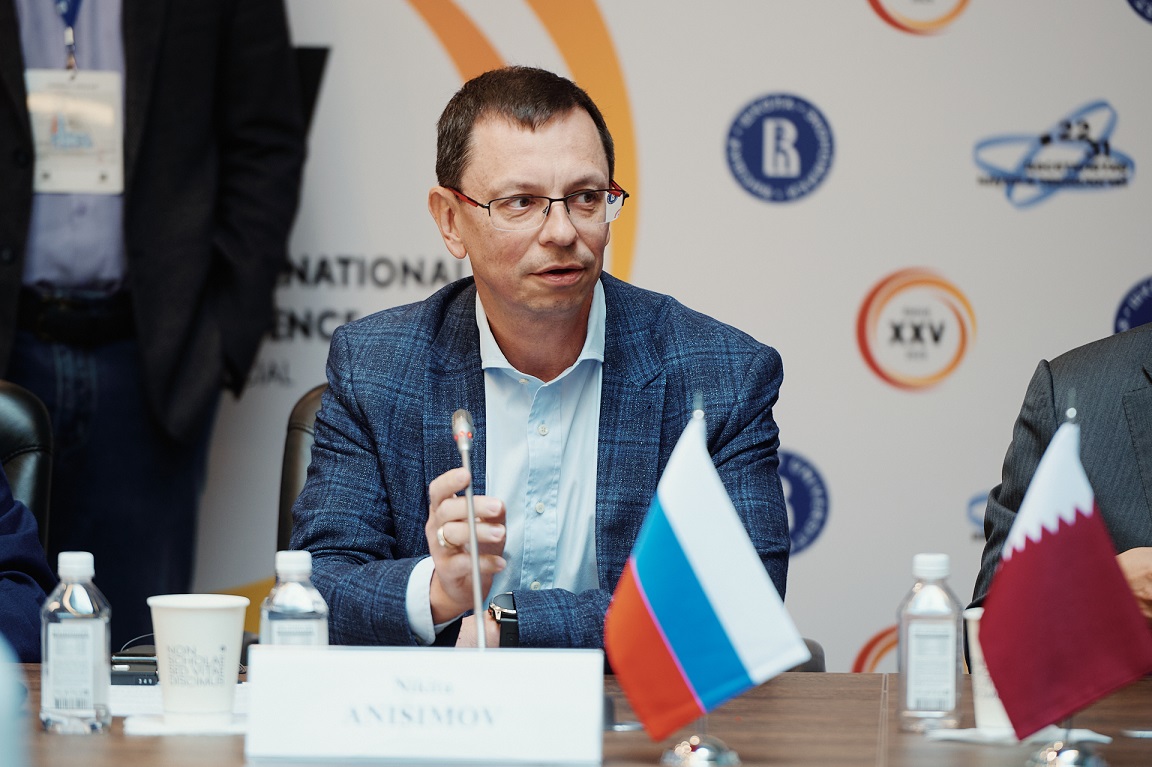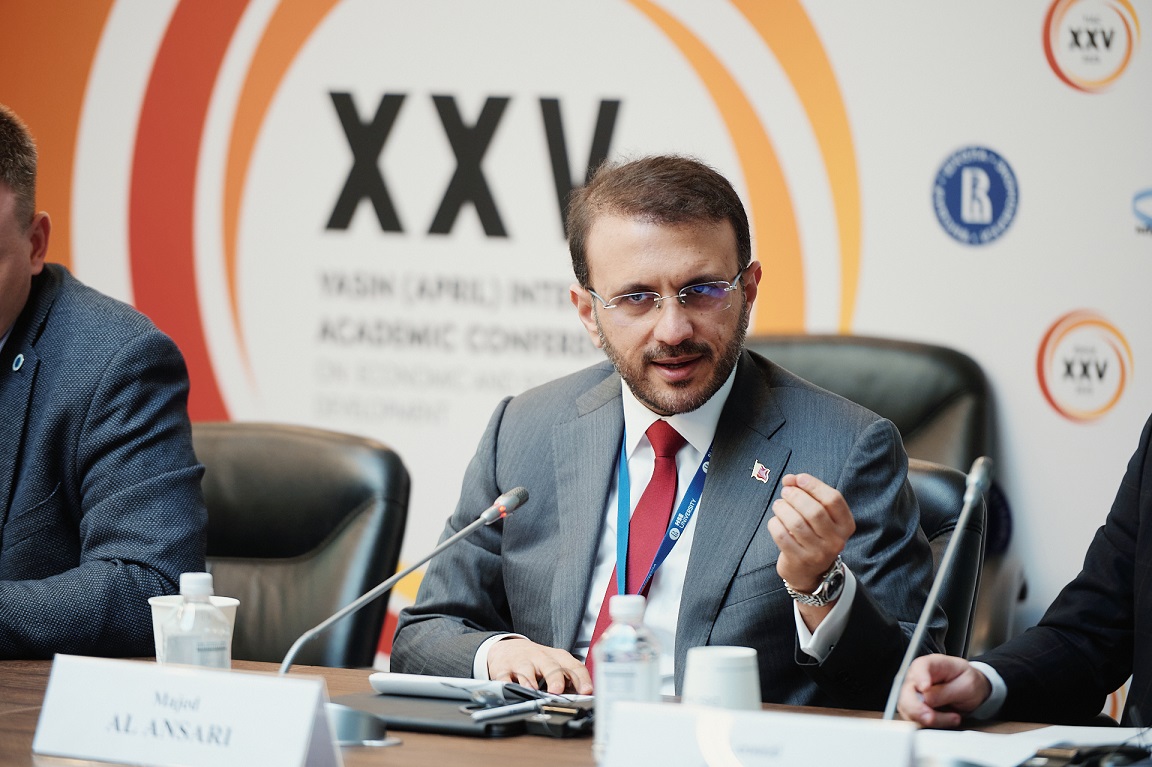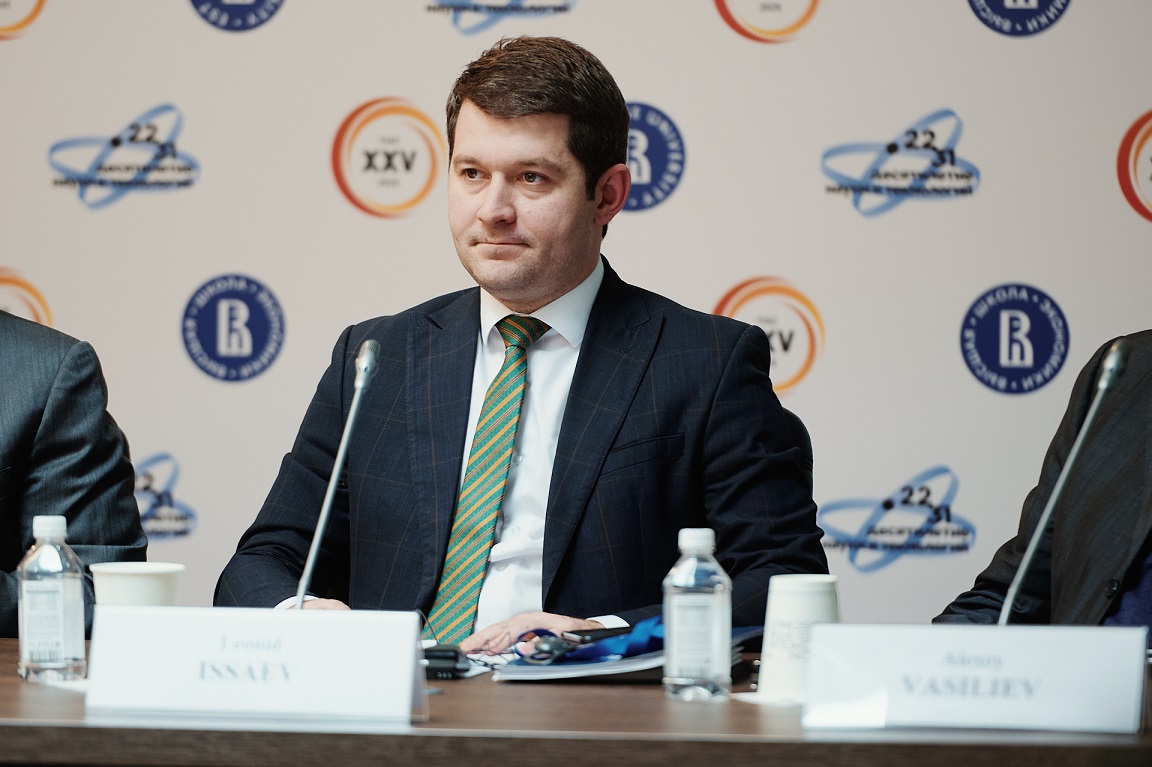HSE Expands Cooperation with Gulf Countries
HSE University and the Centre for International Policy Research (Qatar) have agreed to collaborate in the field of social sciences, with plans for joint research, academic exchanges, and regular expert engagement. The agreement was signed during the roundtable ‘State Capacity and State Resilience in the Global South,’ held as part of the 25th Yasin (April) International Academic Conference at HSE University.

At the signing ceremony, HSE University Rector Nikita Anisimov expressed his gratitude to the Qatari partners for participating in the April conference and for their interest in cooperation with HSE. He noted that the agreement was being signed on the eve of the Emir of Qatar’s visit to Russia and expressed hope that it would help strengthen relations between the two countries. Nikita Anisimov highlighted the dynamic development of bilateral ties in science and education.
Majed Mohammed Al Ansari, President and Chair of the Board of Advisors of the Centre for International Policy Research, also emphasised the importance of the agreement for furthering bilateral relations. He noted the in-depth discussion on international politics and security at the roundtable. In his view, joint work between researchers from the two countries will help Russia and Qatar avert security and stability threats and analyse the origins of new challenges. Majed Mohammed Al Ansari thanked HSE University and Nikita Anisimov personally for organising the conference.

At the roundtable, Majed Mohammed Al Ansari remarked that for a long time, the Gulf countries had acted as junior partners to Western states and corporations in the extraction of raw materials. However, since the 1970s, Gulf states have been creating their own national champions, capable of independently extracting resources and building export partnerships with other companies and countries. Qatar established an investment agency and a sovereign wealth fund to manage oil revenues. The national champion strategy extended beyond the energy sector to other industries as well—particularly aviation and media, around which infrastructure has been developed. The emergence and operations of these companies have reshaped Qatar’s role in the world.
The President of the Centre for International Policy Research explained that since 2018, Qatar has been following a model of sustainable security, which combines favourable conditions for investment, resilience to sanctions, and the strengthening of national defence. Qatar also seeks to diversify its foreign policy partnerships by expanding cooperation with Russia, China, and other countries.
Qatar is emerging as an important international mediator in resolving political, economic, and military conflicts. Among the external challenges facing Qatar and the region, Majed Mohammed Al Ansari highlighted ongoing conflicts in the Middle East, including in Syria, Lebanon, Yemen, and Palestine. In his view, countries in the region should play an active role in resolving conflicts within the Gulf.
The Qatari expert stressed that, in recent years, the government’s efforts have focused on creating employment opportunities for its citizens, stimulating entrepreneurial activity, and increasing participation in the private sector—which currently employs no more than 3% of the working-age population (the majority are employed in government institutions and state-linked companies). ‘The idea is that economic sustainability must be robust, and every person should be not only a consumer but also a producer. We need to begin a rebranding of the country,’ said Majed Mohammed Al Ansari. To achieve this, he believes it is crucial to recognise and understand the challenges the country faces, and to address structural issues rather than relying solely on financial injections.
Presentations at the roundtable were also delivered by Vladimir Sazhin, Senior Research Fellow at the Institute of Oriental Studies of the Russian Academy of Sciences; Vitaly Kabernik, Senior Research Fellow at MGIMO; and Mikhail Mironyuk, First Deputy Dean of the HSE Faculty of Social Sciences.

At the conclusion of the roundtable, its moderator, Leonid Issaev, Deputy Director of the Centre for Stability and Risk Analysis at the HSE Faculty of Social Sciences, emphasised the importance of holding discussions that combine political science methodology with the use of quantitative methods and country-specific research, involving leading experts on Iran, Syria, Turkey, and other states. ‘We hope to continue working together in this format in order to achieve more accurate results, including in terms of forecasting,’ he concluded.
Speaking to the HSE News Service, Leonid Issaev noted that collaboration between Russian and Qatari experts would enable a more objective study of the situation in the Middle East and in individual countries of the region, as well as provide policymakers and government officials with more precise and balanced recommendations on the international stage.
See also:
Applications to Participate in April International Academic Conference Now Open
HSE University is now accepting proposals to present academic reports at the XXVI April International Academic Conference named after Evgeny Yasin. Applications can be submitted until December 16, 2025. The conference events will take place mainly on-site in Moscow from April 14 to 17, 2026.
24 Countries Represented at 25th Yasin International Academic Conference Held by HSE University
The Programme Committee of the 25th Yasin (April) International Academic Conference on Economic and Social Development has summed up the initial results. In 2025, 1,384 people from 24 countries and 29 Russian regions participated in the conference, with 335 of them delivering presentations.
Stuck in the Net: How Much Time Children Spend Online
On average, a schoolchild spends 48 hours a week on studies—equivalent to a six-day working week for an adult. This was highlighted by experts at the round table ‘Domains of Children’s Well-Being Evaluation for Human Potential and Evidence-Based Social Policy Development,’ held as part of the 25th Yasin (April) International Academic Conference.
Russian and Chinese Scholars Share Experience of Transformation of Doctoral Education
The Russian and Chinese postgraduate education systems originally borrowed their institutional frameworks from the Soviet Union. However, in the 21st century, they have evolved along different paths. While key performance indicators for postgraduate programmes in Russia are declining, China is seeing a rapid increase in the number of postgraduate students. These contrasting trajectories and the reforms undertaken in each country in recent decades were the focus of a roundtable discussion held as part of the 25th Yasin (April) International Academic Conference.
Nobel Laureate Proposes Solution to Markov Equilibrium Problem
In dynamic games, a Markov equilibrium involves strategies that guide players' behaviour based on the current state of the game, rather than its entire history. This approach is effective when players have access to complete information. But when uncertainty arises in the game—for instance, when players are unsure of who they are dealing with—this approach can become problematic. Eric Maskin, Nobel Laureate in Economics and Professor at Harvard University, addressed this issue in a paper presented at the XXV Yasin (April) International Academic Conference on Economic and Social Development held at HSE University from April 15 to 18, 2025.
‘The World Is Becoming More Complex and Less Predictable’: What Scientists Say about the Future
The future is now more difficult for researchers to forecast, and events that are hard to predict are playing an increasingly significant role. But there is good news too: scientists are confident that humanity will adapt to any changes. This was the focus of discussion at the International Symposium ‘Foresight in a Rapidly Changing World,’ which took place as part of the 25th Yasin (April) International Academic Conference.
Fragmentation and Bloc Formation: How the Global Economy is Changing
Sergey Dubinin, former head of the Bank of Russia and Professor of Finance and Credit at the Faculty of Economics at Moscow State University, has delivered an honorary address at the XXV Yasin (April) International Academic Conference. He spoke about the transformation of the global monetary and financial system, as well as the Russian economy.
More Children, More Happiness: HSE Experts Study Impact of Number of Children on Russians' Assessment of Happiness
Russians with children feel happier than those without children. At the same time, the number of children influences the assessment of happiness: the more children Russians have, the happier they feel. These conclusions were outlined inthe report ‘More Children, More Happiness: The Impact of the Number of Children on Russians’ Assessment of Happiness,’ presented at the XXV Yasin (April) International Academic Conference on Economic and Social Development, held on April 15–18 at HSE University. The study was conducted by Elena Churilova, Senior Research Fellow, and Dmitry Jdanov, Chief Research Fellowat HSE International Laboratory for Population and Health.
‘We Grow Old before We Become Rich’: How BRICS Countries Can Achieve Economic Growth
Due to population aging, many countries aiming for economic prosperity have limited time left to undergo economic transformation, according to the honorary report Narratives Versus Reality on Employment and Demography: How Undermining Institutions Can Push Countries Out of the ‘Narrow Corridor’ by Santosh Mehrotra of the University of Bath. The report was presented at the XXV Yasin (April) International Academic Conference.
XXV Yasin (April) Academic Conference Kicks Off at HSE University
The anniversary 25th Yasin (April) International Academic Conference on Economic and Social Development will take place from April 15 to 18. This year, over a thousand applications were submitted to present at the conference, of which the Programme Committee selected 381 of the best research papers in their respective fields.


